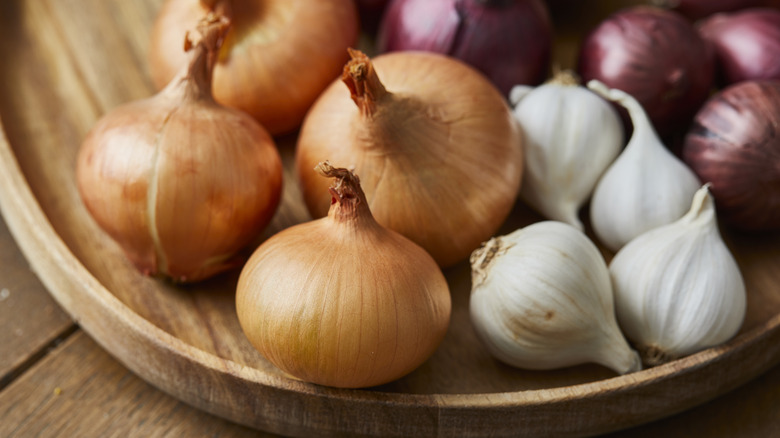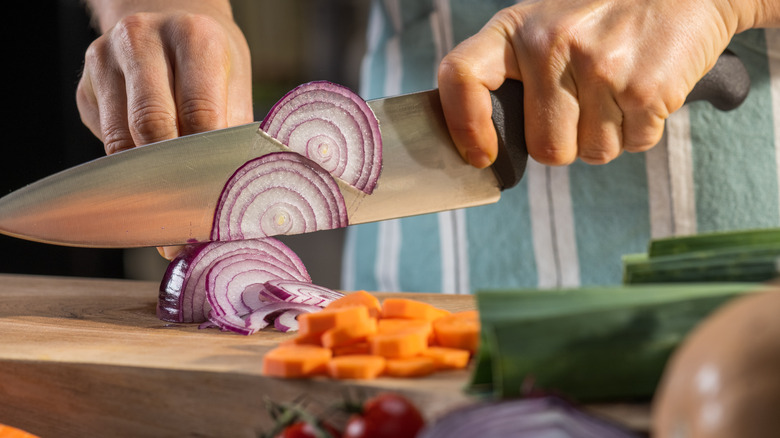Why It's Crucial To Smell Your Onions Before You Buy Them
Your sense of smell is often your greatest ally when it comes to telling whether food has gone bad. Sure, there are times when a bad or strange scent doesn't indicate the food is off, such as with particularly smelly cheeses or with durian fruit, and sour smells can sometimes simply be a result of vacuum-sealing meat. But for the most part, if you grab milk that smells like sewage or eggs that smell like sulfur, it means you should stay away. But those are obviously bad smells — and they're not the only ones to watch out for at the grocery store.
If you've ever had an onion go bad, you know the horrors it can unleash, creating scents heretofore unsmelled by mortal man. And when shopping for onions, you might be thinking you just have to sniff out for a rotten smell, but that isn't the case. Instead, your worry is if grocery store onions smell ... well, like onions. It may seem paradoxical, but the presence of that smell means they're already on their way to going bad.
The onion smell occurs when an onion is damaged
That funky-smelling chicken from the supermarket is easy to identify and stay away from, but an onion is trickier. The issue here is what causes that smell in the first place: The breaking of an onion's cell walls. The smell of onions comes from the same source as why they make you cry: Because of the release of sulfur compounds as they come apart. If you smell the onion smell in the supermarket, it means the produce is already damaged, having suffered its fate on its way to the shelf (typically either in transit or during stocking).
Once an onion's cell walls are damaged, it's well on its way to spoiltown. It hasn't necessarily gone bad yet, but it won't last nearly as long as an onion that doesn't smell at all. This isn't just onions, either, as the same rule applies to other alliums, such as shallots or garlic. If you can smell any of them strongly, don't buy them.
There are other ways to tell if an onion has gone bad
While smell is the most important way to tell if an onion has gone bad (or is well on its way there), it isn't the only way, and your other senses are important, too. Visually, the presence of dark spots — or even more obviously, mold — is a clear indication an onion might be past its prime. Touch matters as well, as a fresh onion will be firm. If it's soft while still raw, don't eat it.
Contrary to perception, though, sprouted onions are still perfectly safe to eat. It's true that they're closer to going bad than before they've started sprouting, but they're not there yet. You don't have to worry about this in the supermarket since a grocery store isn't going to stock sprouted onions. If it happens at home, though, be sure to use them soon — and use them in recipes that call for a stronger, more bitter onion flavor because that's the taste you'll be working with.


